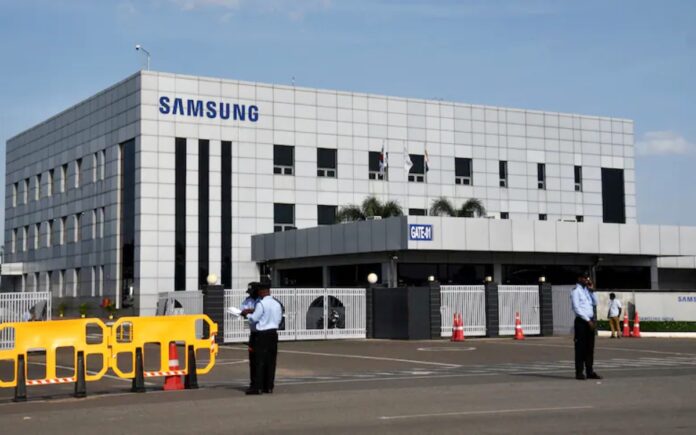Mumbai: Samsung has filed a petition with India’s Customs, Excise, and Service Tax Appellate Tribunal (CESTAT) in Mumbai to dismiss a $520 million tax demand, contending that Indian authorities were already aware of the classification method used for its networking equipment imports. The company argues that the same practice was long adopted by Reliance Industries, which imported similar components without paying tariffs for several years.
According to legal filings reviewed by the international news agency Reuters, the South Korean electronics giant is the latest major foreign firm to contest a large tax demand from Indian authorities. In a comparable development, German automaker Volkswagen has taken legal action against the Indian government over a $1.4 billion tax claim involving component imports.
In Samsung’s case, Indian tax authorities in January accused the company of avoiding customs duties by misclassifying imports of Remote Radio Head (RRH) units—essential components for mobile towers. These were sold to Reliance Jio, the telecom arm of billionaire Mukesh Ambani’s Reliance Industries, between 2018 and 2021. The RRH units, compact modules that house radio-frequency circuits, are considered by Indian officials to be “one of the most important” parts of 4G telecom systems.
Samsung, in its 281-page appeal submitted on April 17, maintains that the Indian tax department was already “fully aware” of the classification method being used. The filing states:
“The classification adopted by the appellant (Samsung) was known to the authorities, however the same was never questioned … Department was fully aware.”
The company further claims that:
“Reliance Jio officials did not inform” Samsung about the tax warning of 2017.
According to Samsung, Reliance had been cautioned by tax authorities in 2017 for a similar import classification practice. However, the South Korean firm alleges it was never informed of this development by either Reliance or Indian tax authorities. Despite the similarities, the tax authorities did not raise objections with Samsung during the relevant period.
Neither Samsung nor India’s tax department responded to Reuters’ requests for comment. Details surrounding Reliance’s alleged 2017 warning remain undisclosed, and the company also declined to provide a response.
Also Read | Ukrainian Strike Devastates Electrical Factory in Bryansk, Russia
In addition to the $520 million demand, Indian officials have imposed a separate fine of $81 million on seven Samsung employees. While the employees’ plans to contest the fines remain unclear, the total potential liability in the case stands at $601 million—more than 60% of Samsung India’s $955 million net profit reported last year.
Samsung has also criticized the conduct of the tax authority, arguing that the January decision was rushed and that the company was denied a reasonable chance to present its case. The filing asserts that the decision was made “in a hurry” and without granting Samsung “a fair opportunity,” despite the “huge stakes” involved.
Also Read | Pakistan Bans Indian Ships from Its Ports in Reciprocal Move
The Indian tax order accuses Samsung of misclassifying $784 million worth of RRH components imported from Korea and Vietnam between 2018 and 2021. Investigators have alleged that Samsung deliberately engaged in the practice to increase profits, stating:
“(Samsung) transgressed all business ethics and industry practices or standards in order to achieve their sole motive of maximising their profit by defrauding the government exchequer,”
The case highlights the growing scrutiny faced by multinational corporations operating in India, especially those involved in high-value technology imports. It also underscores the broader challenges posed by differing interpretations of tariff classifications in the country’s complex tax regime.



